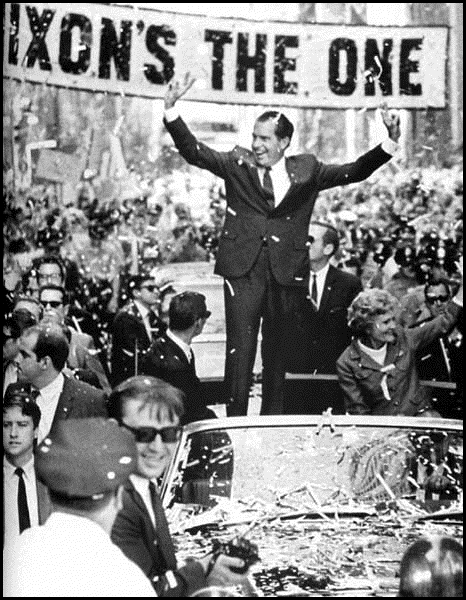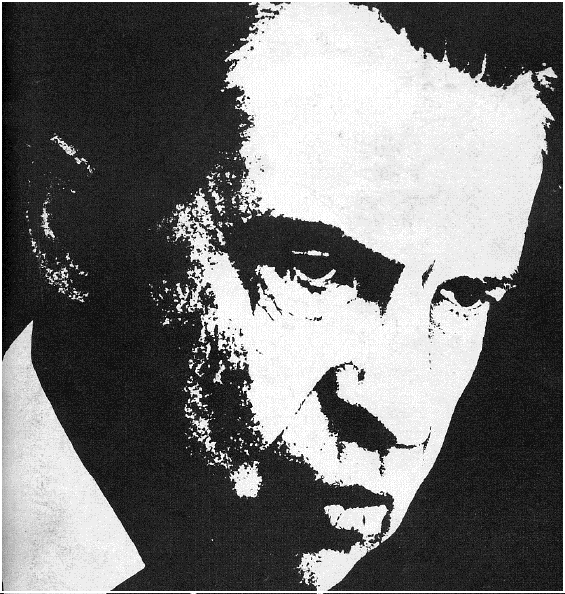A Novel
Thomas Mallon
(Random House)

- During the proceedings, Hunt had refused to shake hands with McCord --- a good piece of playacting that made him appear as angry as Liddy over the way McCord's March letter to Sirica had broke open the case. Whereas, of course, Hunt remained happy that McCord had written it, just the way Hunt knew he would after receiving that other letter in his mailbox: The WH will try to use even the plane crash in order to shift blame for Watergate over to the agency ...
I am not so sure how anyone born after 1960 is going to trick this out. It is all very self-referential.
I was fifty years old in 1973 when most of what we now call "The Watergate" transpired, and since I was a deep fan of political messes, all those names are still in my memory-bog, along with their faces, their rôles in the crime (and the subsequent coverup), and the drama and seedy adventure of it all.
I read passages here about Howard Hunt, and I think about the elusive novelist, whose wife died mysteriously shortly after the break-in came to light. There was Gordon Liddy, the madman who, they say, dreamed up the whole caper, breaking into Democratic National Committee offices, operatives who called themselves "the Plumbers:" they were there to fix leaks. Of the journalistic variety.
I see the name McCord, and I recognize at once the ex-CIA agent John McCord caught with his hands in the cookie-jar there inside the Democratic National Committee offices at the Watergate apartment complex, the guy probably most responsible for making the whole card-pile collapse. Judge John Sirica? He was known as "Maximum John" and he may well have broken the case open by being unmoved by these hot-shot political characters who came into his courtroom, yukking it up, mocking him and his judicial dignity, so that he was forced to show them, quickly, who was boss. In truth, he sentenced them to thirty years not for breaking and entering, but because arrogant Liddy presumed to laugh at his seedy municipal court (these were men with direct connections to the White house, not your usual G Street pimps).
Oh it was a fine tangle, maybe even a Greek Tragedy if you want to get carried away, built on the hubris of so many characters who had arrogated too much power to themselves. Most of all, it was built on the whims of one of the oddest duck presidents that we have been able to come up with --- and we have found some dandy nut-cases to run the country (Jackson, Lincoln, Roosevelts I & II, Kennedy, Bush II). The root cause in "The Watergate" --- the first time, we presume, that a huge political denouement has been named after an astonishingly vile-looking apartment complex --- was Nixon's desperate need for secrecy. This was a man so private (and so foolhardy) that he ended up having tapes of his most intimate secrets (and his prejudices, and his weaknesses ... even his virtues, what few he had) paraded before the world, by means of the famous Oval Office tapes.
So many funny characters: Chuck Colson who famously had posted above his desk in the White House a sign that told of his belief in power, "If you have them by the balls, their hearts and minds will follow." There was the pipe-smoking U. S. Attorney General John Mitchell and his entrancing wife, Martha Mitchell; she, drunk, hectoring, calling reporters in the middle of the night, whispering what secrets she knew. And some were right on, much to everyone's surprise.
Then there is the Brahmin Elliot Richardson, the succeeding A.G., who, it is reported here, painted birds and did a bit of tippling himself when behind the wheel. Fred LaRue --- the quiet bagman from Mississippi who delivered over a million dollars here and there to keep mouths shut.
All these names are tucked back in the corner of the minds of those who lived through the whole stool, so when I started Watergate: A Novel, so much came clear. But I cannot for the life of me figure out how someone from the generation of the 80s or 90s is going to be able to get the thrill of this, much less go at it with the ease and enthusiasm of those of us who could never get our fill of it on the pages of the New York Times, Washington Post, L. A. Times.
We gorged on it, had it for breakfast, lunch, and supper. We always wanted more: now, even now, when some minor fact comes to light, we light up: for instance, the secret of secrets that stayed buried for thirty-five years, the identity of "Deep Throat," the titillatingly named character, who met with reporters Woodward and Bernstein in a dark parking garage.
The Senate hearings went on for weeks: surly Haldeman with his crew-cut; wimpy John Dean with wife Maureen (how did I remember her name so quickly just now? --- blonde hair; downcast eyes, sitting like a statue, right behind him, throughout the hearings); steely ex-CIA agent James McCord laying it all out so precisely; Alex Butterfield who had wired up the entire Oval Office, could not tell a lie; Sam Ervin with his waggly eyebrows and arthritis-tortured fingers; sly Sen. Herman Talmadge (who himself nabbed for illegal contributions further down the line); Rose Mary Woods, Nixon's private secretary, always in the background, claiming the missing 18-1/2 minutes of a key tape made three days after the break-in had gone missing because her foot inadvertently erased it while she was transcribing; and dozens and dozens of others who made the political scene so endearingly fun and sordid at the same time, brought it home to us in one of the first of Reality Television programs, so that we were part of it and it was a part of us. Outside of the Army-McCarthy hearings twenty years earlier and the Anita Hill testimony a decade after ... there was never a more loaded, exquisite television drama to thrill us political nuts.

- He can do a little 'legislating from the bench,' and we'll get amnesty, acid, and abortion after all.
Mallon --- not inexpertly --- takes the facts and dolls them up with some plot-line twists. For instance, he chooses to have Rose Mary Woods delete that part of the crucial tape not because there was the need to hide anything, but because the voice of HRH (presidential assistant Haldeman) got her goat by not acknowledging her loyalty to Nixon.
And the denouement? Where did the whole wonderful caper came from? Not --- according to Mallon --- from Nixon's blind need for secrecy; nor from Gordon Liddy's dramatic need for a thrilling madcap adventure; nor from anything else but a slight error of hearing, something that LaRue said to Jeb Magruder, when they were drunk one night, in a bar in Georgetown. Fred muttered one name; Magruder heard another. And from that single misapprehension, Mallon claims, flowed one of the great political adventures of all time.